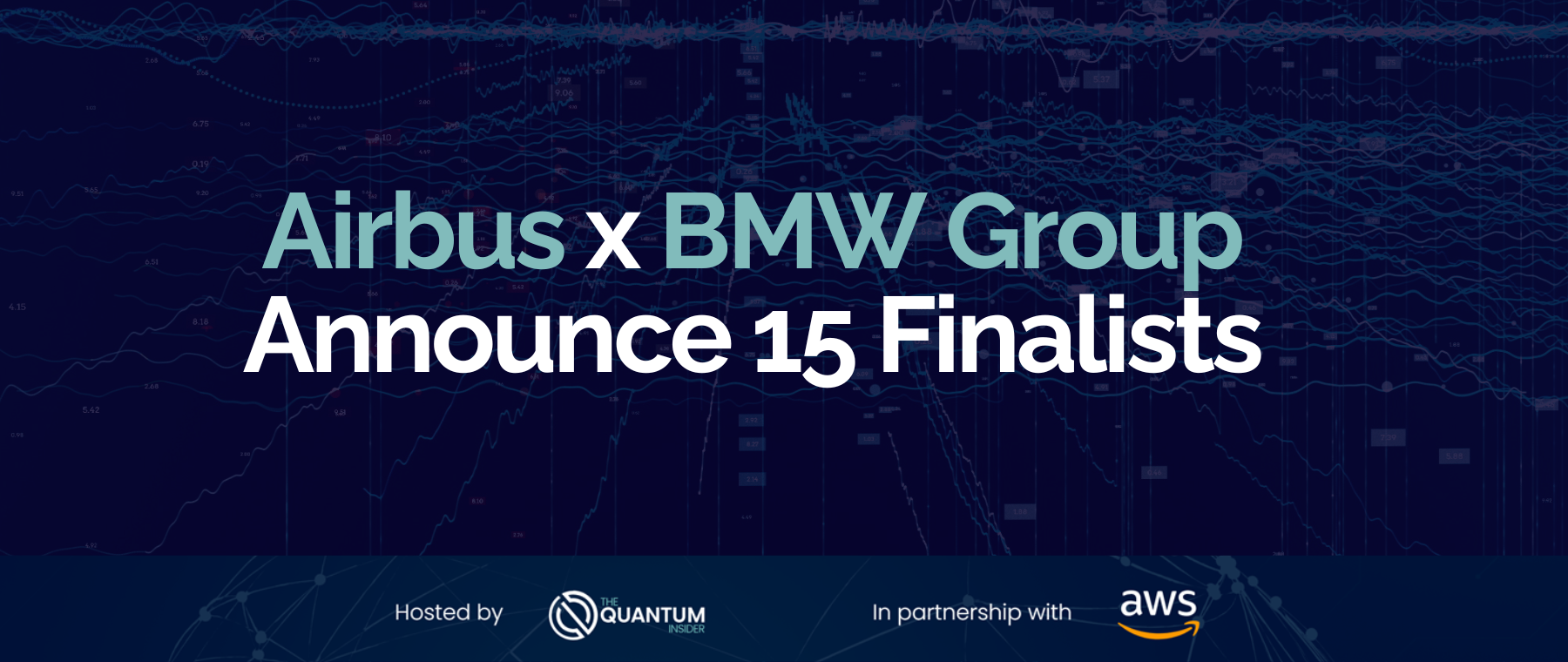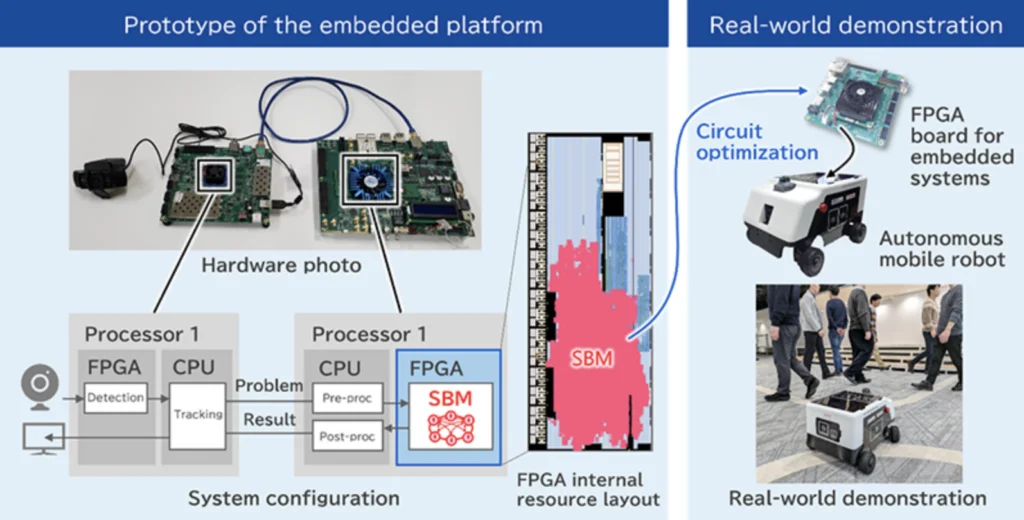Airbus and BMW have announced the 15 finalists for the Airbus-BMW Group Quantum Computing Challenge (ABQCC), marking a significant stride towards leveraging quantum technologies for industrial applications.
These finalists, hailing from institutions and companies around the world, have been selected to advance to Phase II of the challenge, which will focus on implementing and demonstrating their innovative solutions.
420 teams submitted registrations and over 100 detailed proposals were submitted through the challenge portal. The finalists represent a mix of nine companies and six universities or research and technology organizations (RTOs) from a wide range of countries, including the United States, Germany, Japan, the United Kingdom, the Netherlands and the United Arab Emirates.
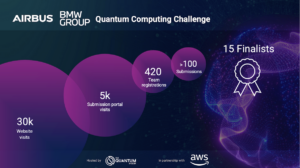

The selected finalists include teams from across the world: InhibitQ, University of Southern California, Missouri State University in collaboration with STFC UKRI, 4 Colors Research, Q-CTRL, NTT Data, The University of Tokyo, Quandela, QuanIT in collaboration with Kipu Quantum & DXC Technologies, Technology Innovation Institute, University of Hamburg, HAIQU, TU Delft, Cogniframe, and Lightsolver.
You can read more about these finalists below.
Next Phase
Phase II of the challenge will see these finalists benchmark their solutions using datasets provided by Airbus and BMW Group. This phase is a critical step in evaluating the practical applications of quantum and quantum-inspired technologies in addressing real-world mobility challenges.
To ensure a level playing field, all finalists will have access to Amazon Braket, the quantum computing service offered by AWS, to access quantum computing hardware and simulation resources, provided by request. The challenge hosts also welcome credits, support and compute time from other quantum computing providers who wish to provide their offerings to challenge participants. This accessibility will ensure that the evaluation of each solution is based on merit and innovation rather than resource availability.
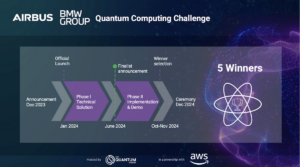
Use Cases and Benchmarking
The challenge features four use cases, formulated with the expertise of Airbus and BMW Group, in collaboration with the Amazon Quantum Solutions Lab, covering various application domains. These use cases serve as the foundation for the solutions being developed and benchmarked during the challenge. The goal is to explore new and original approaches to mobility challenges through quantum technologies, ranging from sustainability and safety to automated driving and logistics.
In Phase I, the focus was on exploring the solution space and identifying innovative approaches to these challenges. The transition to Phase II marks the beginning of detailed benchmarking of selected solutions, with support from specialists at Airbus and BMW Group.
Reverse Track: Describing Technology and Potential Applications
In addition to the main track, the challenge includes a Reverse Track, where quantum technology providers describe their technologies and potential application areas relevant to the mobility industry. These submissions must include feasibility studies and arguments for future business relevance in the automotive and aerospace sectors. This track aims to uncover and benchmark innovative technologies that could significantly impact these industries.
Airbus and BMW Group: Pioneering Quantum Mobility
The challenge represents a unique collaboration between Airbus and BMW Group, two global leaders in their respective industries.
Airbus has a history of pioneering innovation in aerospace. The company’s first Quantum Computing Challenge in 2019 showcased the potential of quantum technologies in flight physics, attracting high-quality solutions from around the world. This current challenge builds on that legacy, expanding the scope to include broader mobility applications.
BMW Group, with its four prestigious brands—BMW, MINI, Rolls-Royce, and BMW Motorrad—brings a wealth of experience in premium manufacturing and mobility services. The company’s extensive production network and commitment to innovation make it an ideal partner in this quantum quest.
Learn More
To learn more, here’s a video featuring quantum expert Anastasia Marchenkova’s interview with Elvira Shishenina from BMW Group and Jasper Krauser from Airbus to discuss how the aerospace and automotive industry is looking at quantum computing and the Airbus BMW Quantum Challenge.
You can view Resonance’s video on the challenge, too.
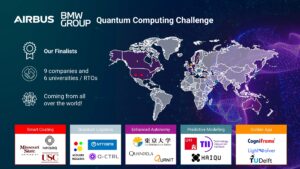
Finalist list
Below is a full list of the finalists, presented in no particular order. Details on challenge submissions for each will be shared in the coming weeks.
Smart Coating
- Missouri State University
- InhibitQ
- University of Southern California
Quantum-Powered Logistics
- 4 Colors Research
- Q-CTRL
- NTT DATA
Quantum-Enhanced Autonomy
- The University of Tokyo
- Quandela
- QuanIT
Quantum Solvers
- Technology Innovation Institute
- University of Hamburg
- HAIQU
The Golden App
- TU Delft
- Cogniframe
- Lightsolver

